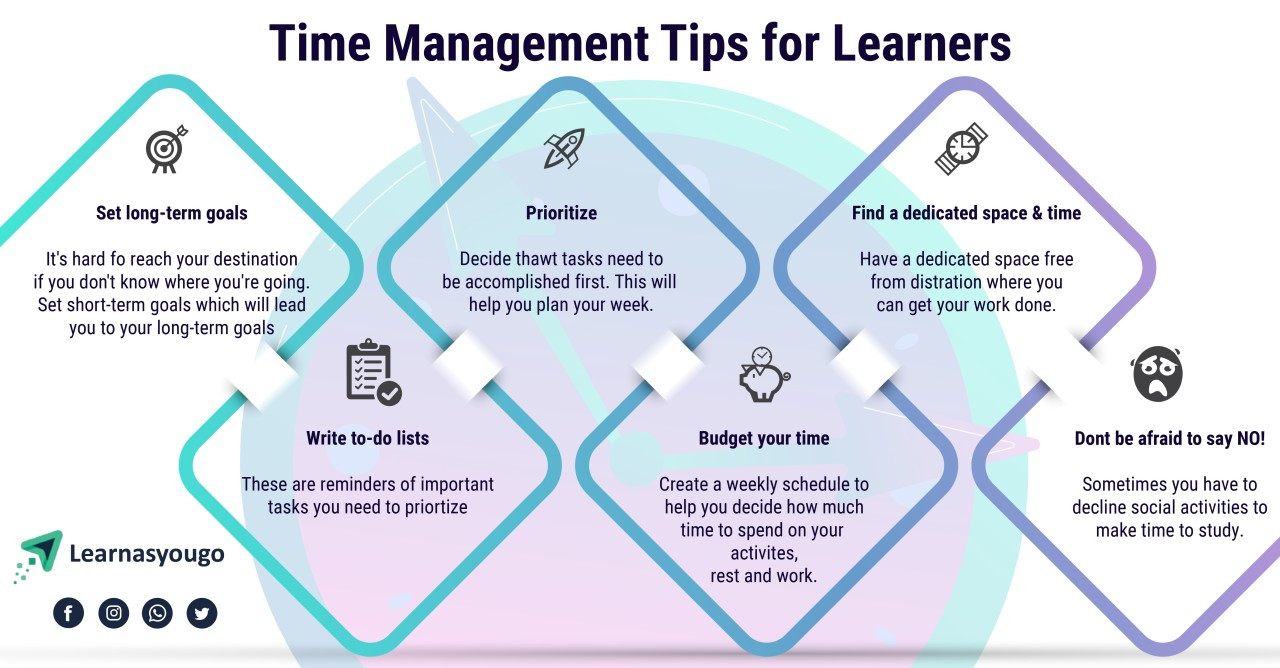Understanding Your Time Management Style: Identifying Strengths and Weaknesses
Every entrepreneur has a unique time management style, shaped by their personality, habits, and work environment. Understanding your time management style is crucial to identifying your strengths and weaknesses, and making informed decisions about how to optimize your time usage. There are several common time management styles, including the “planner,” the “prioritizer,” and the “multitasker.” Each style has its advantages and disadvantages, and understanding which style you identify with can help you tailor your time management approach to your individual needs.
For example, “planners” are meticulous about scheduling and organization, but may struggle with flexibility and adaptability. “Prioritizers” are skilled at identifying and focusing on high-priority tasks, but may neglect less important tasks or procrastinate on complex projects. “Multitaskers” are adept at juggling multiple tasks simultaneously, but may struggle with distractions and decreased productivity.
Common time management pitfalls include procrastination, overcommitting, and poor delegation. Procrastination can be overcome by breaking tasks into smaller, manageable chunks, and creating a schedule with realistic deadlines. Overcommitting can be avoided by learning to say “no” to non-essential tasks, and prioritizing tasks based on their importance and urgency. Poor delegation can be improved by clearly communicating expectations and responsibilities to team members or freelancers, and establishing a system for monitoring progress and providing feedback.
By understanding your time management style and identifying your strengths and weaknesses, you can develop a personalized approach to time management that helps you achieve your goals and optimize your productivity.
Setting Clear Goals and Priorities: The Foundation of Successful Time Management
Setting clear goals and priorities is the foundation of successful entrepreneurial time management. Without a clear direction, entrepreneurs can easily become bogged down in non-essential tasks, leading to decreased productivity and increased stress. By setting SMART (Specific, Measurable, Achievable, Relevant, Time-bound) goals, entrepreneurs can create a roadmap for success and ensure that their time is focused on high-priority tasks.
SMART goals are specific, well-defined objectives that provide a clear direction for time management. For example, instead of setting a goal to “increase sales,” a SMART goal would be to “increase sales by 15% within the next 6 months by attending at least 2 networking events per month and following up with 10 new leads per week.” By making goals specific, measurable, achievable, relevant, and time-bound, entrepreneurs can create a clear plan of action and track progress towards their objectives.
Prioritizing tasks effectively is also crucial for successful time management. By identifying the most important tasks and focusing on them first, entrepreneurs can ensure that their time is spent on high-priority activities. The Eisenhower Matrix is a useful tool for prioritizing tasks, categorizing them into urgent vs. important and focusing on the most critical tasks first.
Additionally, entrepreneurs can use the ABCD method to prioritize tasks, labeling them as A (high priority, high urgency), B (high priority, low urgency), C (low priority, high urgency), or D (low priority, low urgency). By prioritizing tasks effectively, entrepreneurs can maximize their productivity and achieve their goals.
By setting clear goals and priorities, entrepreneurs can create a foundation for successful time management and achieve their objectives. By using SMART goals and prioritizing tasks effectively, entrepreneurs can ensure that their time is focused on high-priority activities and maximize their productivity.
Managing Distractions and Minimizing Procrastination: Strategies for Staying Focused
Distractions and procrastination are two of the most significant obstacles to successful entrepreneurial time management. With the constant availability of social media, email, and other digital distractions, it’s easy to get sidetracked and lose focus. However, by implementing strategies to manage distractions and minimize procrastination, entrepreneurs can stay focused and achieve their goals.
One effective technique for managing distractions is the Pomodoro Technique. This involves working in focused 25-minute increments, followed by a 5-minute break. After four cycles, take a longer break of 15-30 minutes. This technique can help entrepreneurs stay focused and avoid burnout.
Time blocking is another strategy for managing distractions. This involves scheduling large blocks of uninterrupted time to focus on important tasks. By eliminating distractions during this time, entrepreneurs can make significant progress on their goals.
Avoiding multitasking is also essential for minimizing procrastination. While it may seem efficient to work on multiple tasks simultaneously, research has shown that multitasking can actually decrease productivity and increase stress. Instead, focus on one task at a time, and give it your undivided attention.
Additionally, entrepreneurs can use technology to their advantage by implementing tools that help minimize distractions. Website blockers, such as Freedom or SelfControl, can block social media and other distracting websites during focused work periods. Apps like RescueTime can track time spent on tasks and provide insights on productivity.
By implementing these strategies, entrepreneurs can minimize procrastination and stay focused on their goals. By managing distractions and avoiding multitasking, entrepreneurs can achieve successful entrepreneurial time management and drive their businesses forward.
Leveraging Technology to Boost Productivity: Essential Tools for Entrepreneurs
Technology has revolutionized the way entrepreneurs manage their time and increase productivity. With the right tools, entrepreneurs can streamline their workflow, automate repetitive tasks, and focus on high-priority activities. In this section, we will explore the essential tools for entrepreneurs to leverage technology and boost productivity.
Project management software is a must-have for entrepreneurs who want to stay organized and focused. Tools like Asana, Trello, and Basecamp allow entrepreneurs to create and assign tasks, track progress, and collaborate with team members. These tools also provide features like time tracking, reporting, and integration with other apps.
Time tracking apps are another essential tool for entrepreneurs. Tools like RescueTime, Harvest, and Toggl allow entrepreneurs to track how much time they spend on tasks, projects, and clients. This information can be used to identify areas for improvement, optimize workflow, and increase productivity.
Browser extensions are also a great way to boost productivity. Tools like Grammarly, Boomerang, and StayFocusd can help entrepreneurs stay focused, avoid distractions, and improve their writing and communication skills.
Additionally, entrepreneurs can use automation tools like Zapier and IFTTT to automate repetitive tasks and workflows. These tools allow entrepreneurs to connect different apps and services, automate tasks, and focus on high-priority activities.
By leveraging technology and using the right tools, entrepreneurs can boost their productivity, streamline their workflow, and achieve successful entrepreneurial time management. By automating repetitive tasks, tracking time, and staying focused, entrepreneurs can free up more time to focus on high-priority activities and drive their business forward.
Delegating Tasks and Outsourcing Effectively: Maximizing Your Time and Energy
Delegating tasks and outsourcing effectively is a crucial aspect of successful entrepreneurial time management. By delegating tasks to team members or freelancers, entrepreneurs can free up more time to focus on high-priority activities and drive their business forward. However, delegating tasks effectively requires a clear understanding of what tasks can be delegated, how to communicate effectively with team members or freelancers, and how to monitor progress.
Identifying tasks that can be delegated is the first step in effective delegation. Entrepreneurs should identify tasks that are repetitive, time-consuming, or outside their area of expertise. These tasks can be delegated to team members or freelancers, freeing up more time for the entrepreneur to focus on high-priority activities.
Communicating effectively with team members or freelancers is also crucial for successful delegation. Entrepreneurs should clearly define the tasks to be delegated, provide necessary instructions and resources, and establish a system for monitoring progress. Regular check-ins and feedback can also help ensure that tasks are being completed effectively and efficiently.
Outsourcing tasks can also be an effective way to free up more time and energy. Entrepreneurs can outsource tasks such as bookkeeping, social media management, and content creation to freelancers or virtual assistants. This can help reduce the workload and allow the entrepreneur to focus on high-priority activities.
By delegating tasks and outsourcing effectively, entrepreneurs can maximize their time and energy, and achieve successful entrepreneurial time management. By freeing up more time to focus on high-priority activities, entrepreneurs can drive their business forward and achieve their goals.
Self-Care and Time Management: The Importance of Maintaining a Healthy Work-Life Balance
Maintaining a healthy work-life balance is crucial for successful entrepreneurial time management. When entrepreneurs neglect their physical and mental health, they can experience decreased productivity, increased stress, and a higher risk of burnout. By prioritizing self-care and maintaining a healthy routine, entrepreneurs can improve their time management skills and achieve their goals.
Prioritizing self-care involves making time for activities that nourish the mind, body, and spirit. This can include exercise, meditation, and spending time with loved ones. By prioritizing self-care, entrepreneurs can improve their focus, increase their energy levels, and enhance their overall well-being.
Managing stress is also essential for maintaining a healthy work-life balance. Entrepreneurs can manage stress by taking regular breaks, practicing relaxation techniques, and seeking support from friends, family, or a therapist. By managing stress, entrepreneurs can reduce their risk of burnout and improve their time management skills.
Maintaining a healthy routine is also crucial for successful entrepreneurial time management. This can include establishing a consistent sleep schedule, eating a healthy diet, and engaging in regular exercise. By maintaining a healthy routine, entrepreneurs can improve their physical and mental health, and enhance their overall productivity.
By prioritizing self-care, managing stress, and maintaining a healthy routine, entrepreneurs can achieve a healthy work-life balance and improve their time management skills. By taking care of their physical and mental health, entrepreneurs can increase their productivity, reduce their risk of burnout, and achieve their goals.
Reviewing and Adjusting Your Time Management Strategy: Continuous Improvement for Success
Regularly reviewing and adjusting your time management strategy is crucial for achieving successful entrepreneurial time management. By reflecting on your time management progress, identifying areas for improvement, and making adjustments accordingly, entrepreneurs can ensure continuous improvement and maximize their productivity.
Reflecting on your time management progress involves tracking your time usage, identifying patterns and trends, and evaluating your progress towards your goals. This can be done using time tracking apps, calendars, or spreadsheets. By regularly reviewing your time management progress, entrepreneurs can identify areas for improvement and make adjustments to their strategy.
Identifying areas for improvement involves analyzing your time management data and identifying patterns and trends. This can include identifying time-wasting activities, optimizing workflows, and streamlining processes. By identifying areas for improvement, entrepreneurs can make targeted adjustments to their time management strategy and maximize their productivity.
Adjusting your time management strategy involves making changes to your workflow, habits, and routines. This can include delegating tasks, outsourcing activities, and implementing new tools and technologies. By adjusting your time management strategy, entrepreneurs can ensure continuous improvement and maximize their productivity.
By regularly reviewing and adjusting their time management strategy, entrepreneurs can achieve successful entrepreneurial time management and maximize their productivity. By reflecting on their time management progress, identifying areas for improvement, and making adjustments accordingly, entrepreneurs can ensure continuous improvement and drive their business forward.
Reviewing and Adjusting Your Time Management Strategy: Continuous Improvement for Success
Regular review and adjustment of a time management strategy are crucial for achieving successful entrepreneurial time management. This process enables entrepreneurs to assess their progress, identify areas for improvement, and make necessary adjustments to optimize their time usage. By doing so, entrepreneurs can ensure that their time management strategy remains effective and aligned with their business goals.
To review and adjust a time management strategy, entrepreneurs should schedule regular review sessions, ideally on a weekly or monthly basis. During these sessions, they should reflect on their time management progress, identifying what is working well and what areas need improvement. This can be done by tracking time spent on tasks, monitoring productivity, and assessing the achievement of set goals.
When reviewing their time management strategy, entrepreneurs should ask themselves several key questions. Are there any tasks or activities that are consistently taking up too much time? Are there any tasks that can be delegated or outsourced to free up more time? Are there any time-wasting habits or distractions that need to be addressed? By answering these questions, entrepreneurs can identify areas for improvement and make necessary adjustments to their time management strategy.
Adjusting a time management strategy may involve making changes to goal setting, prioritization, or task management. It may also involve implementing new tools or techniques, such as time tracking software or the Pomodoro Technique. By making these adjustments, entrepreneurs can optimize their time usage and achieve greater productivity and efficiency.
Continuous improvement is a key principle of successful entrepreneurial time management. By regularly reviewing and adjusting their time management strategy, entrepreneurs can ensure that they are using their time effectively and achieving their business goals. This process of continuous improvement also enables entrepreneurs to stay adaptable and responsive to changing circumstances, which is essential for success in today’s fast-paced business environment.
In conclusion, reviewing and adjusting a time management strategy is an essential part of achieving successful entrepreneurial time management. By scheduling regular review sessions, reflecting on progress, and making necessary adjustments, entrepreneurs can optimize their time usage and achieve greater productivity and efficiency. By embracing the principle of continuous improvement, entrepreneurs can stay ahead of the curve and achieve long-term success in their business ventures.








